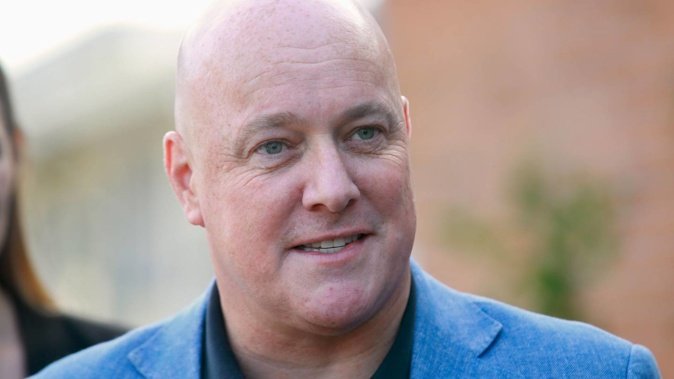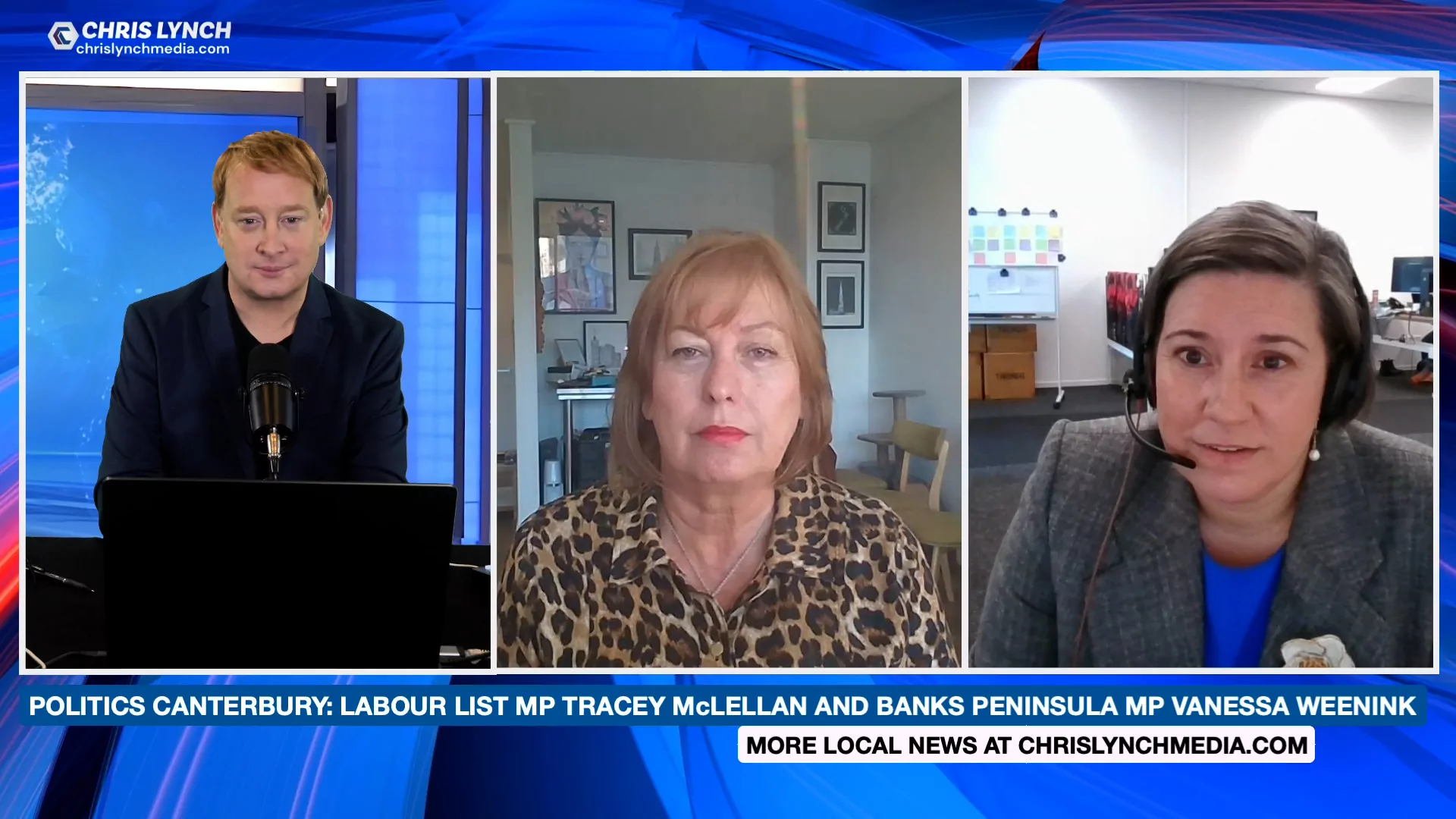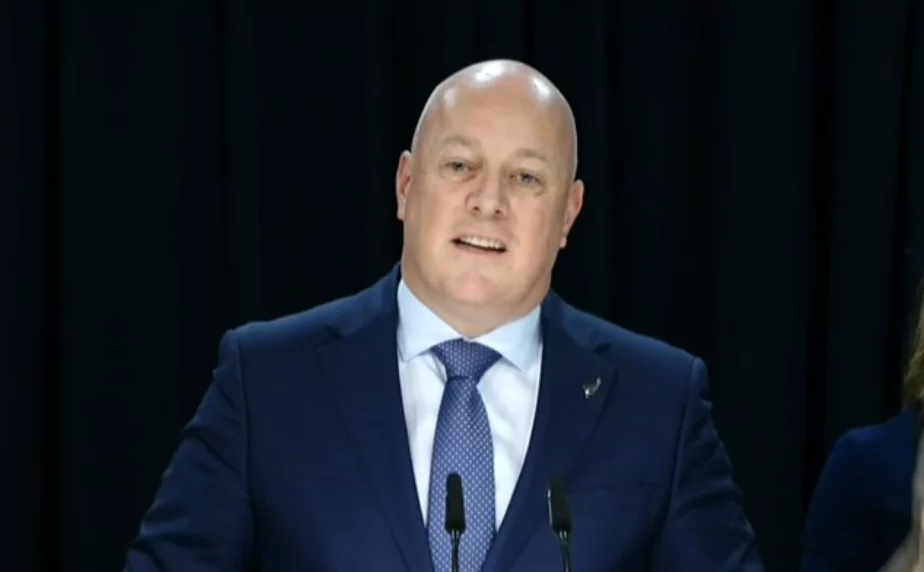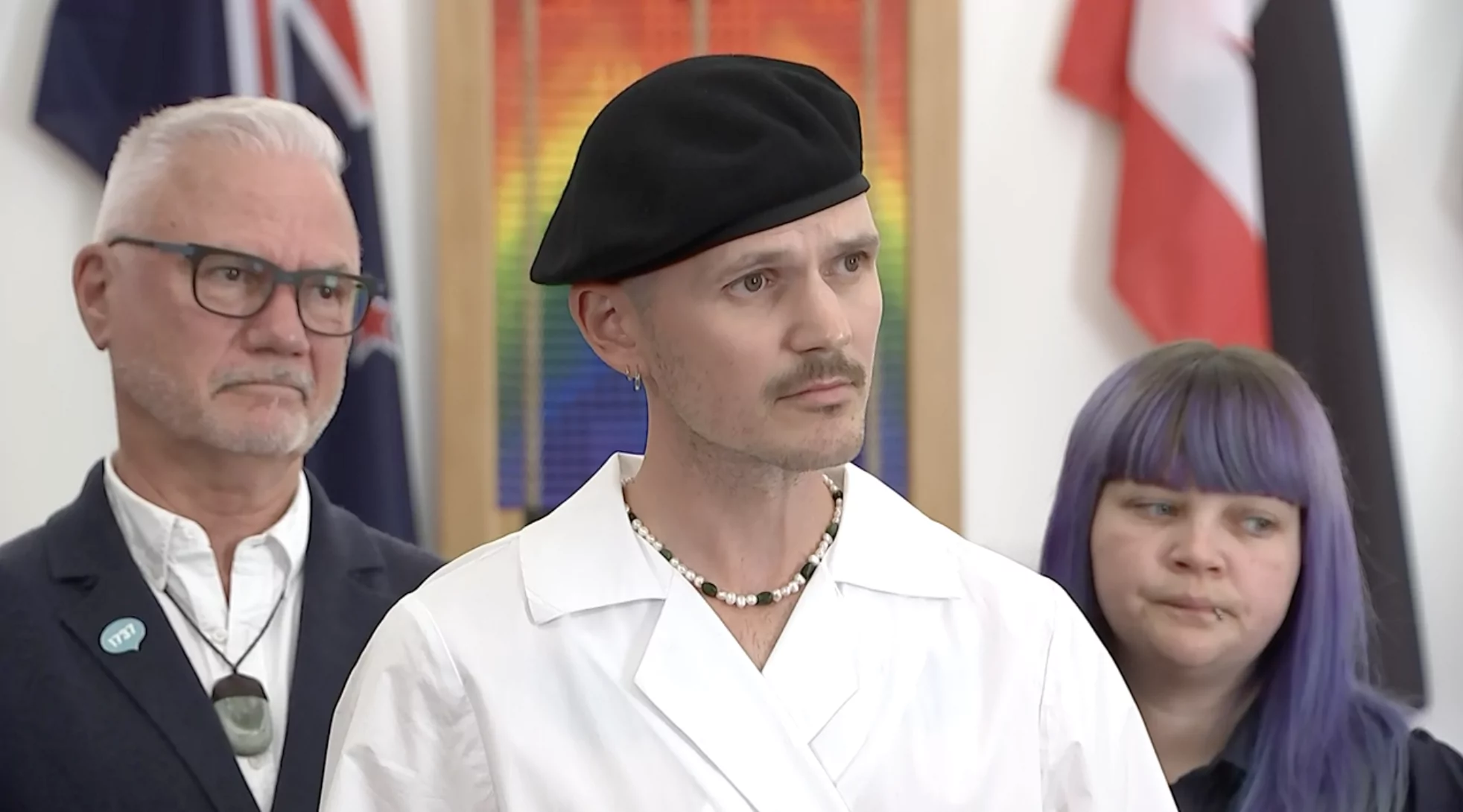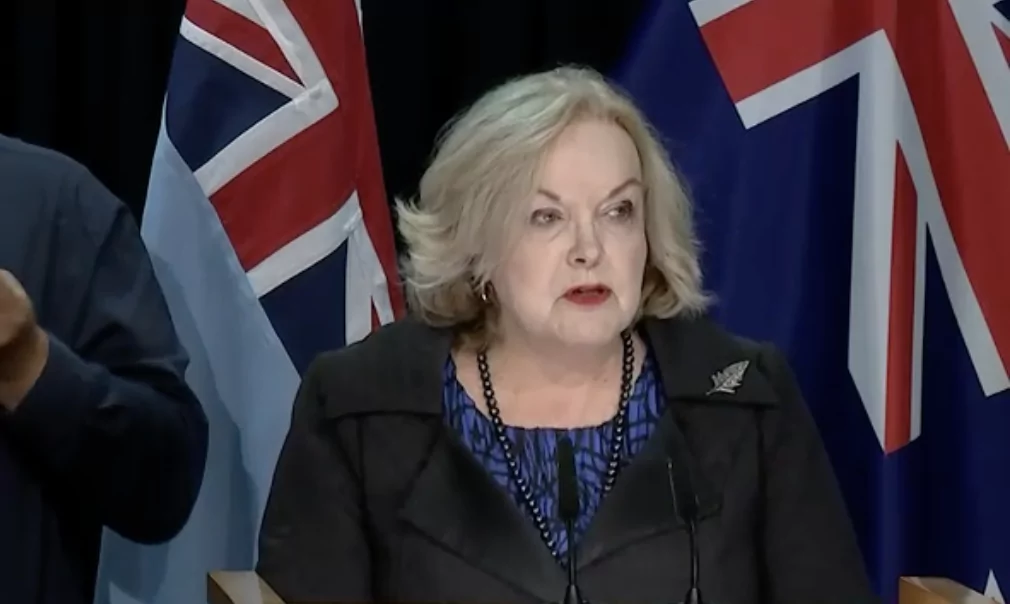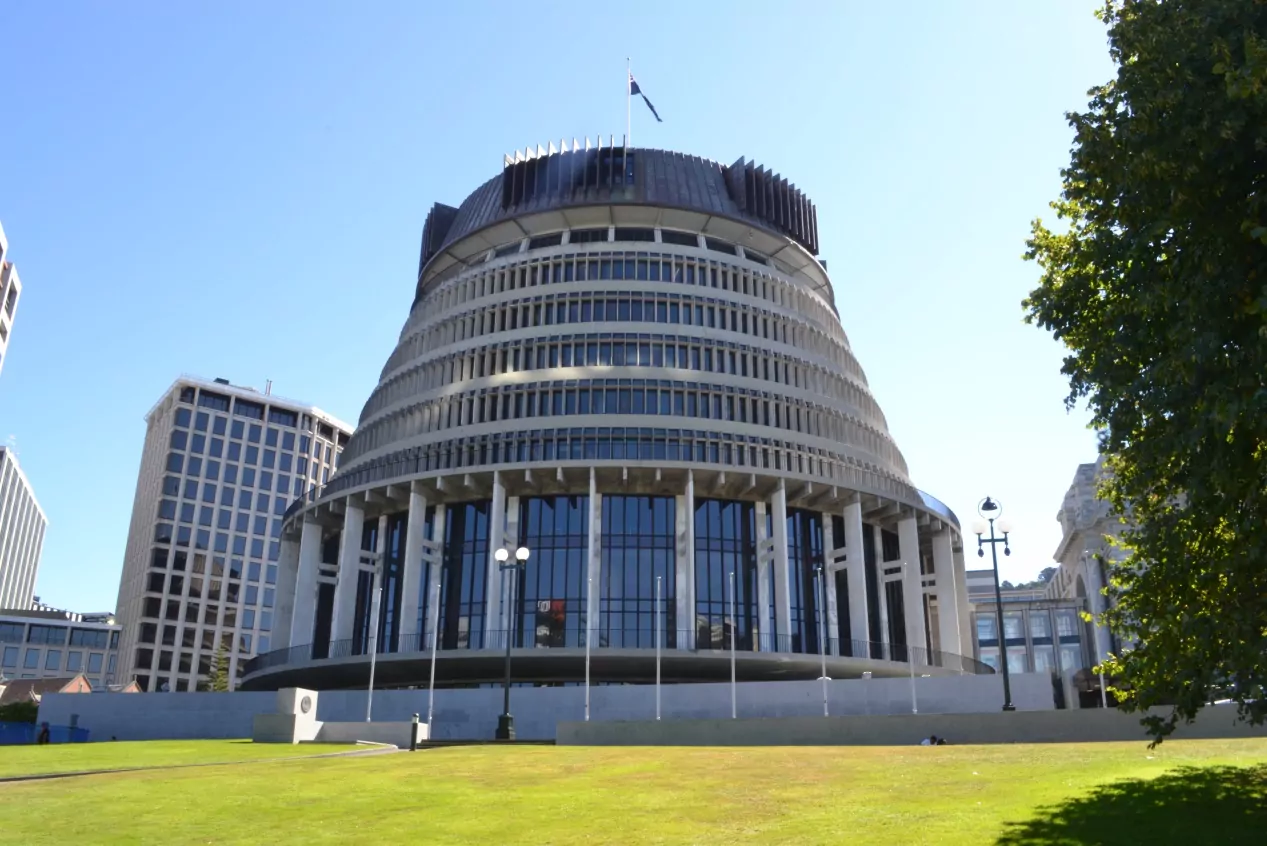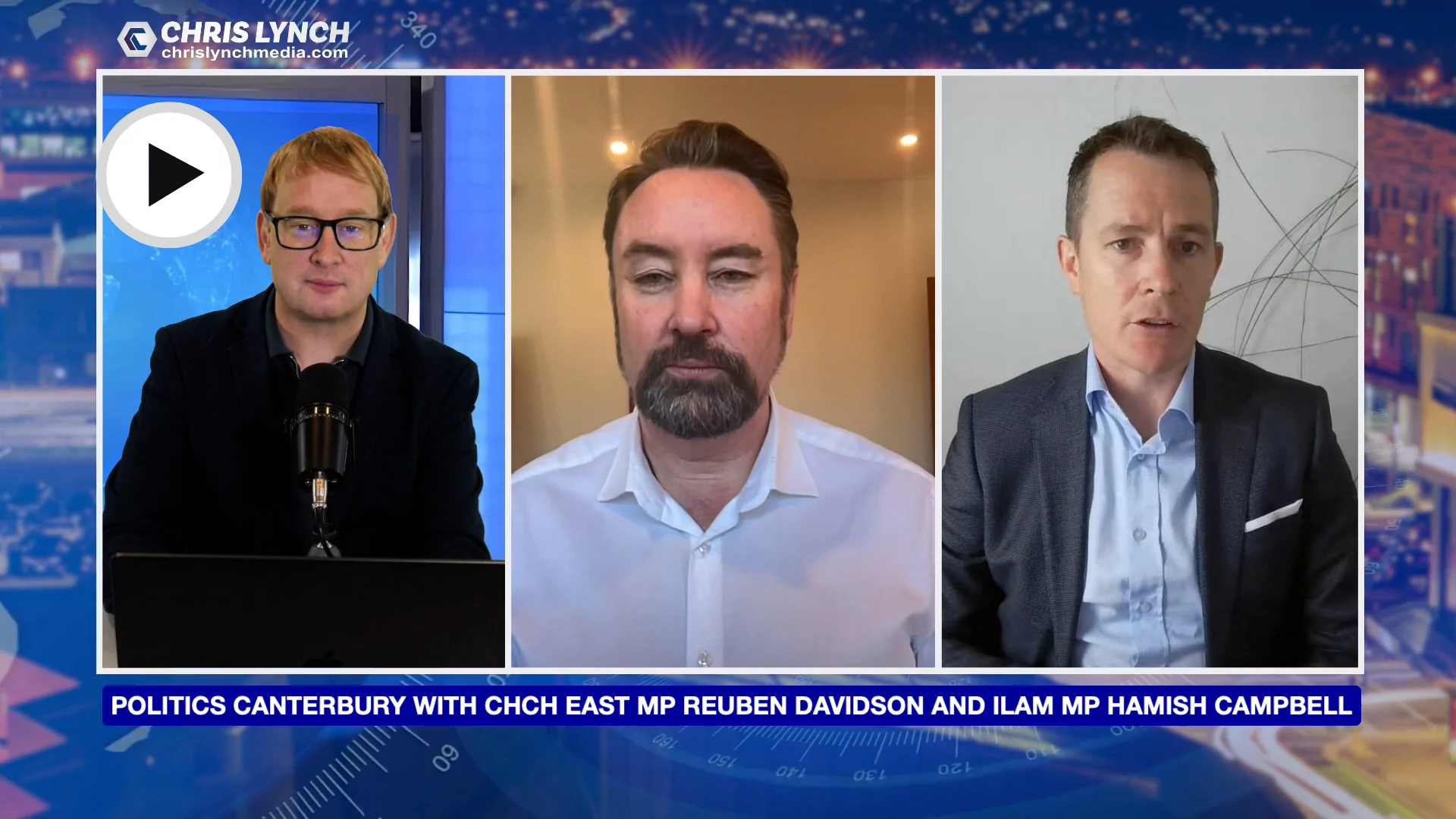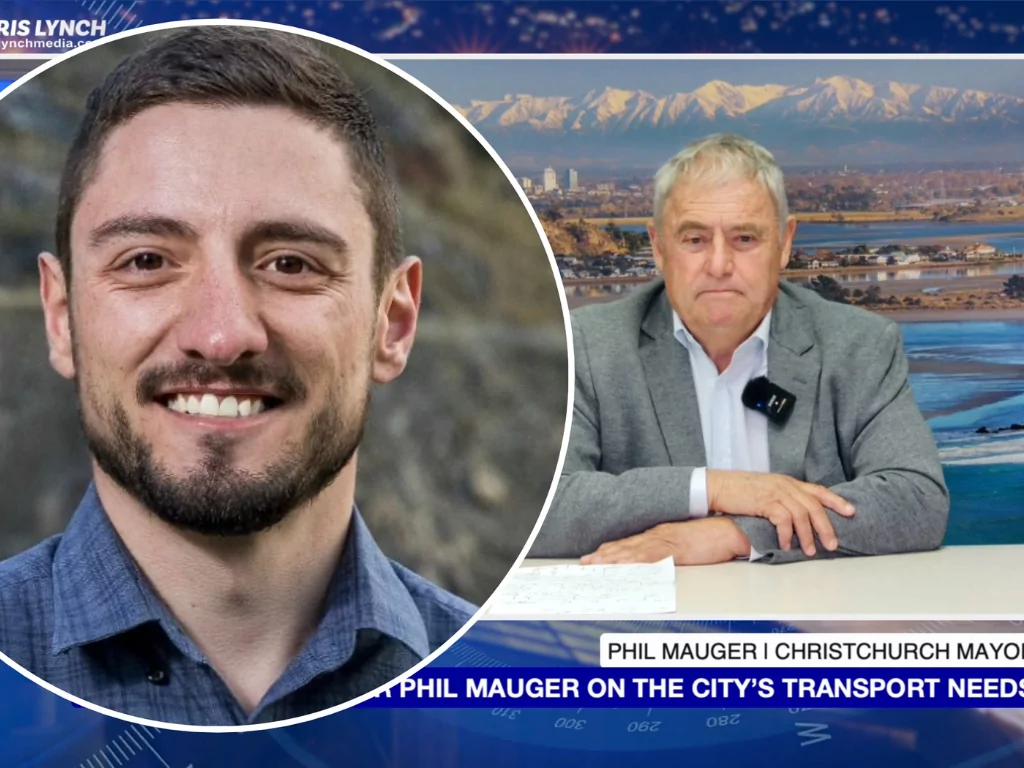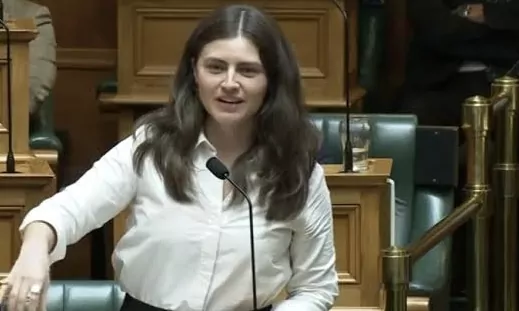Photo / Alex Burton
Prime Minister Christopher Luxon has delivered his speech at Waitangi. This is the full transcript.
E ngā mana, e ngā reo, e ngā iwi, rau rangatira ma. Tēnā koutou katoa.
He tino mihi ki te mana whenua o tēnei rohe.
Mihi mai, mihi mai, mihi mai.
Te whare e tū nei, tēnā koe.
He-wāhi whakahirahira tēnei mō Aotearoa.
Ka huri nga whakaaro, ki nga mate. Moe mai.
Te hunga ora, tēnā tātou.
Thank you Ngā Puhi, Te Tai Tokerau iwi and the Waitangi National Trust for once again hosting these ceremonies commemorating the signing of Te Tiriti o Waitangi.
Waitangi Day is an opportunity to pause and reflect on the foundations of our nation – our history – and to look forward. So, thank you for prompting us in this forum to answer two questions: 1) Where do we want to be as a nation by 2040? And 2) What do we need to focus on in the next three years to get there? Both are good and timely questions.
Now, no journey begins fresh out of nowhere.
All of us are shaped by our parents, families, hapū, faith, community, iwi, ethnicity, nationality and environment.
But the pasts of every one of us are more than a lineage of ancestors recorded on a family tree or tupuna on the wharenui walls. Our pasts are also the stories of what happened to our parents, grandparents, and great-grandparents because those events have contributed in some way to who we are today.
The nation has a past of its own. It is partly the sum of the pasts of its citizens, but also is a history of events – the great and the small, the planned and the unexpected, the triumphs and the setbacks, the good and the bad.
184 years ago today, and seven decades after Cook sailed south from Tahiti, Crown representatives and Māori came together to sign Te Tiriti o Waitangi – The Treaty of Waitangi – a foundational event in New Zealand’s history.
On the 6th of February 1840, Hobson and the chiefs assembled here at Waitangi. And they were people just like us, who were trying to navigate their way towards a united, stable, peaceful and prosperous future.
We know that they likely had different understandings of what they were doing. And we know that in the years that followed, the promise and the obligations of the Treaty were not upheld by the Crown.
Part of the history of modern New Zealand has been our struggle to understand the intentions and expectations of those who signed the Treaty, and how we should act as a result. That work is still happening and will keep going.
Every nation’s past is imperfect. But no other country has attempted to right its historical wrongs or dared to undertake such an ambitious national reconciliation project as we have. While the journey continues, all New Zealanders can take pride. It has required a generosity of spirit from both Iwi and the Crown to restore mana. For all the pain that process has sometimes entailed, we are a better, more open-minded and, I think, more tolerant country because of it.
The Treaty is our past, present and future. It has shaped the country we have become, and the obligations it imposes on both sides will always be with us. However, we must aspire to go forward not as two sides, but together as New Zealanders because there is more that unites us than divides us.
However, unity doesn’t mean all of us being or thinking exactly the same. We can value our differences, debate them constructively while respecting each other, and still find a pathway to a better future together. New Zealand has demonstrated the courage to identify, name and wrestle with its differences and challenges throughout its history. And we will, and we must, keep doing that.
The arc of New Zealand’s history and progress is not linear, but our experience of the last 184 years should give us tremendous confidence that we can shape our future and thrive in the 21st century.
That, if you like, is my preamble to my vision for 2040.
I believe New Zealand is the best country on earth. We have unlimited potential, and everything we need to be successful – the best people, a country well positioned in the middle of the Asia Pacific region, and a liberal democracy with well-established social institutions. We are a multi-cultural nation built on strong bi-cultural foundations, with an acute sense of fairness and a willingness to lend a hand to those who need it.
There are simply no excuses for why we can’t do exceptionally well and be one of the world’s leading, advanced small countries.
By 2040 we will have built a bigger, more productive, smarter, modern 21st century economy that will generate the wealth required to pay for all the things that we need and want to improve the lives of our people.
Imagine a New Zealand where a world class education is setting all of our kids up to take on those higher paying jobs and to do well for themselves.
Imagine a country that embraces technology and innovation to reduce our isolation and so we can sell more valuable exports and earn bigger incomes.
Imagine a country with modern and reliable infrastructure to make all our lives easier and our communities more resilient and prosperous.
Imagine a New Zealand that encourages businesses with less red tape so iwi and others with good ideas don’t have such a struggle to realise them, and can grow and offer more job opportunities and higher wages.
And imagine an outward looking country hustling and connected to the world so it’s easier to make the most of all the global opportunities that exist.
By 2040 we will be the best place and society in the world to be a child, to raise a family, and to make a contribution to your community.
Imagine a New Zealand where every 5-year-old, walking for the first time through the gates of their kura or school, does so with a similar chance of success when they leave school.
And whoever they are and wherever they come from, imagine every single child being safe and well-supported at home so they genuinely have an equal opportunity to do well at school.
Imagine a New Zealand that provides better access to quality healthcare and actually delivers improved health outcomes for everyone. Where parents of Māori children do not wonder if their tamariki will live 6-7 years less than other children.
Imagine a country where every Kiwi has a safe, warm, dry home.
Imagine a country that always helps Kiwis in genuine need with a social safety net, but also has less people dependent on welfare and needing support from their fellow citizens because work pays.
Imagine a New Zealand with less crime and victims of crime where people feel safe in their own homes, businesses or communities. Because at the heart of our society sits the notion that we have both rights and responsibilities to each other and to our country, and people are leading more productive and useful lives.
Imagine a New Zealand where Te Aō Māori is flourishing, where the enduring relationship between the Crown and Iwi improves services and outcomes for tangata whenua, where Treaty settlements have all been completed, and some of New Zealand’s most successful enterprises nationally and internationally are iwi businesses who are using their profits to invest in their people, their rohe, and more business growth.
Imagine a place where our multi-cultural society is a source of pride for all of us.
By 2040, we will be well on track to deliver our Net Carbon Zero goals by 2050.
Imagine a New Zealand with abundant renewable energy that is using science and technology to solve our environmental challenges and to preserve our biodiversity.
Well, I don’t just imagine these things. I am leading a government that is determined to achieve this 2040 vision. I want to see us get our mojo back – a much more confident, positive and ambitious New Zealand. But we will only do it with everyone stepping up and pitching in together.
We have 16 years to achieve that vision, and you have asked what we need to do in the next 3 years to make progress towards it. The answer quite simply is – “lots”, and we look forward to engaging more with you on it. But as the Chinese text says, “a journey of a thousand miles begins with a single step”.
Over the coming three years, this Government will be relentlessly focused on improving the economy because it underscores the standard of living of every single one of us, every family and hapū, and every community and iwi in this country. The struggle with the cost of living is one of the financial legacies of the previous government that spent too much, borrowed too much, and left nothing to show for it except rising debt, high inflation, high interest rates, a shrinking economy, and a lot of extra jobs in Wellington.
So, we have to, as a first step, get the Government’s books back in order. We will make savings and some will go to improving services for New Zealanders. Some savings will have to be used to pay off the huge debt Labour left the country, and some will be returned to you as tax relief. You earned that money and right now, you could do with keeping more of it to make things just a bit easier at home.
We will focus on restoring law and order because Kiwis deserve to feel safe in their own homes, businesses and communities. Under the previous Government, violent crime, retail crime, and youth offending spiralled out of control, causing enormous pain and suffering for too many Kiwis. That’s not fair and that’s not right.
The Government’s third priority for this term is delivering better public services – with a particular focus on health and education. Things like shorter wait times to see a specialist, or be treated in an Emergency Department, and better school attendance and achievement. We’ll be setting targets for many of these goals and holding ourselves accountable for achieving them.
I’ve spoken a lot about education since becoming Leader of the National Party and I will continue to do so, because it is the thing that worries me the most. How can a first-world country have 55% of our kids not attending school regularly and our children not knowing the basics well? It’s a future moral and economic disaster.
So, our Government will do its part by backing our Kaupapa Māori education system, reintroducing partnership schools, investing in structured literacy, teaching the basics well, and setting clear targets focussed on attendance and achievement so that our kids can have the futures they all deserve.
Let me end with a message to iwi: I want Te Aō Māori to thrive. When Māori do well, we all know it, New Zealand does well.
My view is that despite all the words and rhetoric, outcomes for Māori, and indeed all New Zealanders, went backwards in the past six years. To face up to these complex economic, social and environmental challenges, to deliver better outcomes for all our people, and to ultimately realise our 2040 vision, we must work together – and at tremendous speed.
We, like you, believe in localism and devolution, not centralisation and control. No one understands your iwi like your iwi does. So, where iwi and community providers are best at delivering results for your whānau – for example, in childhood immunisations, which was a big programme we funded late last year – we’ll power them up. With that comes accountability for spending public money and for delivering improved results.
So, we will keep talking – sometimes boisterously, always sincerely, I hope respectfully and, I believe, ultimately productively. And alongside the kōrero, in te reo Māori and in English, we need action. Because it’s action that will create tangible improvements in our people’s daily lives.
This Waitangi Day, I renew this Government’s commitment to helping all New Zealanders, Māori and non-Māori, get ahead, and to giving all our children and grandchildren hope for a prosperous and secure future here in this great country.
That goal, and many others, are entirely in our grasp. We can realise them together.
Finally, I say to you that this event, on this marae, and our lifestyles, would have been unimaginable to the people who stood here 184 years ago. But the most fundamental human aspirations are universal – to watch our whānau and families grow in peace and prosperity, to provide for them, to see them flourish and get ahead, to protect and enjoy the environment, to enjoy the freedom of cultural expression, and to know we have an even better future. There is no better country in the world than this to make that a reality.
No reira, tēnā koutou, tēnā koutou, tēnā tātou katoa. Thank you.
